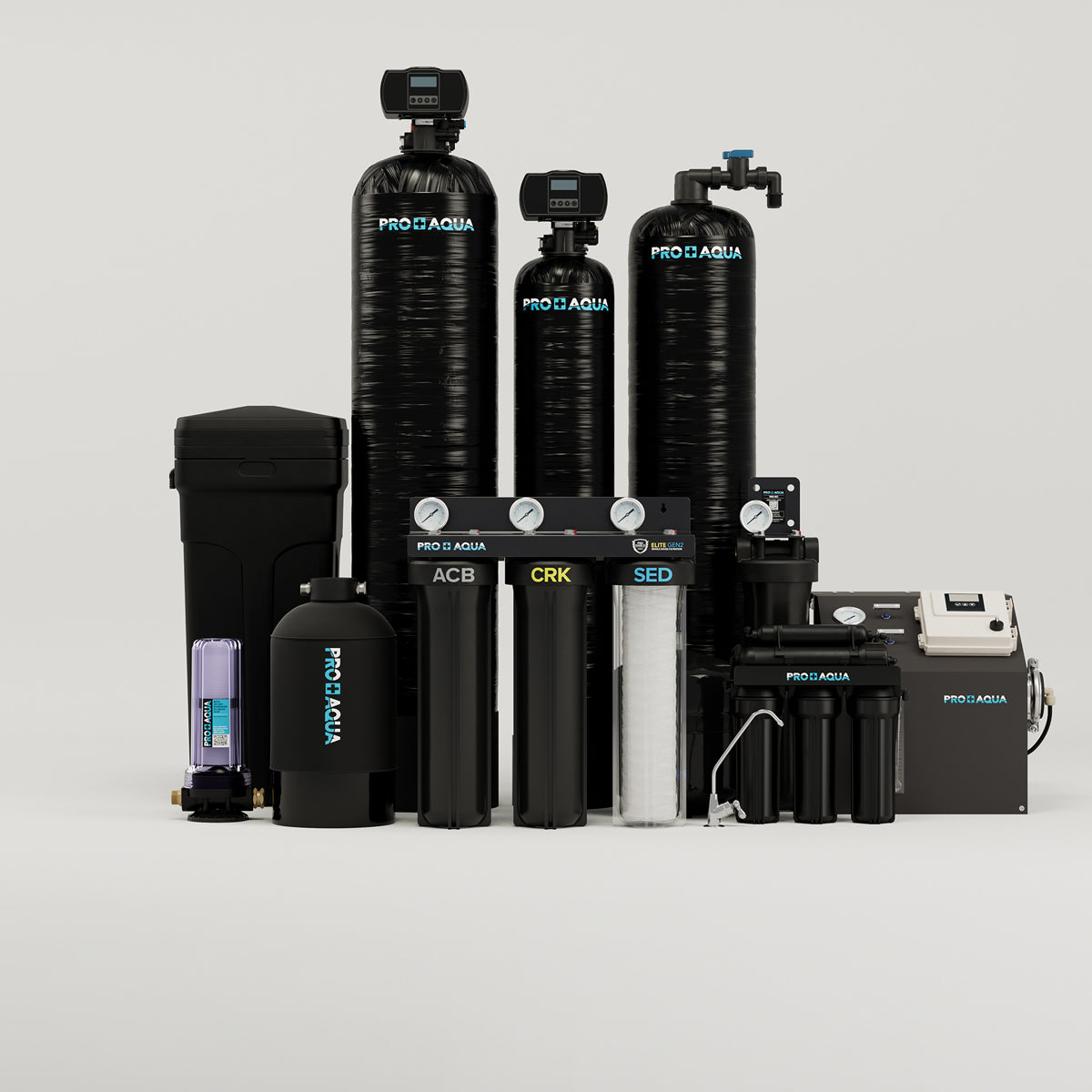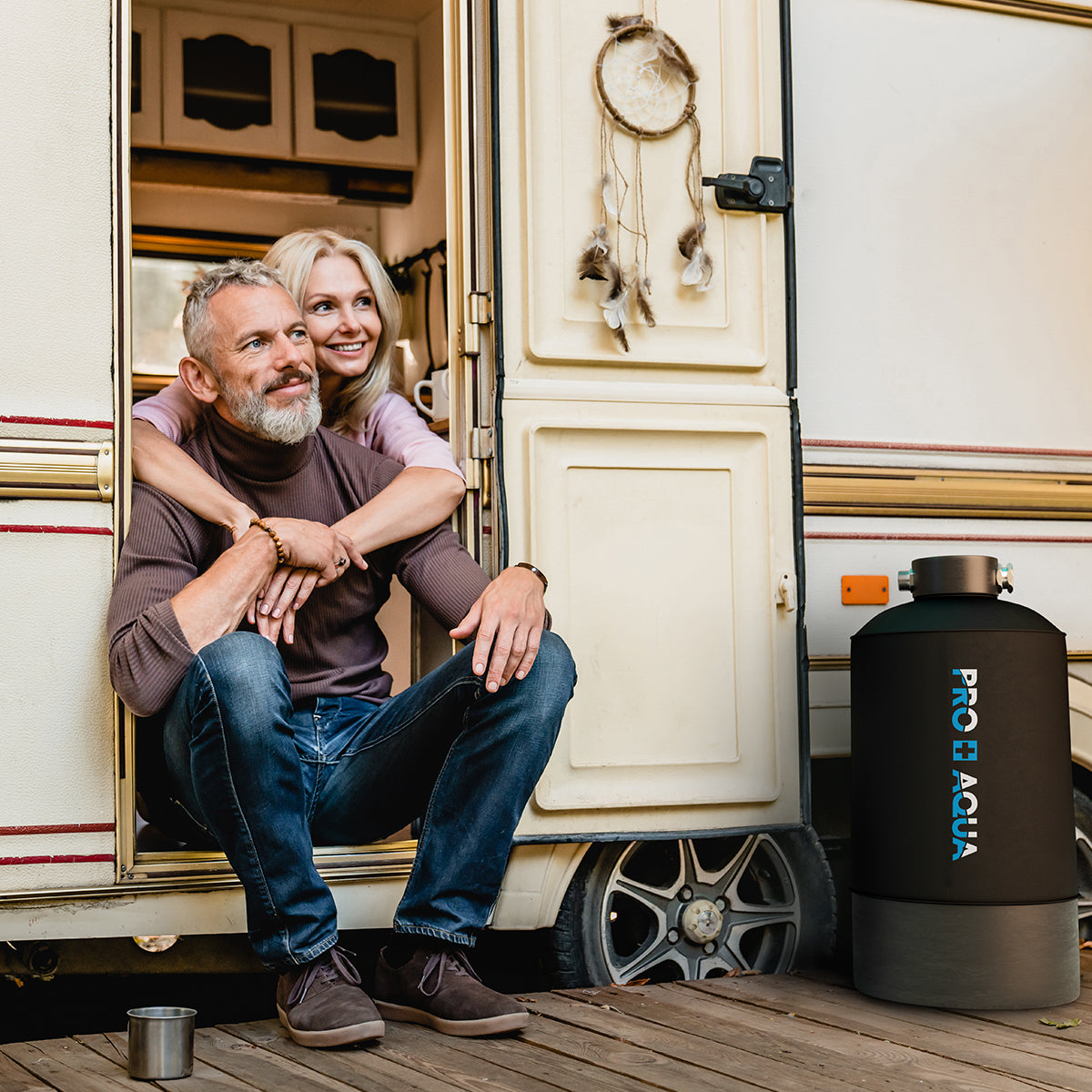Soft water is free of calcium and magnesium, two minerals that cause:
- Scale buildup in plumbing and fixtures
- Soap scum on tubs, tiles, and glass
- Reduced lather from soaps and detergents
When hard water is full of dissolved minerals, there’s less “room” for soap molecules to move and do their job. The result? People often add more soap to compensate — leading to leftover residue that turns into visible soap scum on tubs and showers.

The Key To Cleaner Results
Whether you choose a Whole House System or a Portable System, softeners provide consistent hardness-free water that makes cleaning easier and more effective.
The PRO-S-80E Whole House Water Softener
The PRO-S-80E is a high-capacity system designed for households with 4–6 people and up to 4 bathrooms. It softens water at every fixture, making it ideal for:
- Kitchens and bathrooms
- Laundry rooms
- Outdoor cleaning and washing
With soft water, your favorite cleaning products will work better, and you’ll avoid the stubborn hard water stains left behind by tap water.
Professional Results for Businesses
Professional carpet cleaners and pet groomers have reported impressive improvements after switching to soft water:
For Carpet Cleaners:
- Brighter, more vibrant fibers
- Improved stain removal
- Reduced cleaning product usage
For Pet Groomers:
- Gentler on hands and skin
- Less shampoo and conditioner required
- Shinier, softer pet coats

Pet groomers have also commented on how soft water was better for their own hands and for their client’s skin. They are also using less shampoo and conditioner per job since they are now able to get a better lather. In addition, their client’s coats are shinier and softer.
How PRO+AQUA Softens Water: The Ion Exchange Process
At the heart of the PRO-S-80E is a resin tank filled with cation resin beads — tiny, negatively charged spheres similar in appearance to fish roe.
Here’s how it works:
- City water enters the resin tank with positively charged calcium (Ca²⁺) and magnesium (Mg²⁺) ions.
- The minerals cling to the negatively charged resin beads, removing hardness from the water.
- Softened water flows out, free of hardness minerals.

Over time, the resin beads become saturated with minerals. The system then performs regeneration:
- A brine solution from the brine tank flows into the resin tank.
- Sodium ions from the salt replace the calcium and magnesium ions.
- The minerals are flushed away as wastewater, leaving the resin ready to soften water again.
The PRO-S-80E’s automatic control head ensures regeneration happens after a set amount of water usage, so you always have a steady supply of soft water.

Cleaner Homes, Better Results, Longer-Lasting Equipment
From everyday household cleaning to professional applications, soft water from a PRO+AQUA water softener delivers superior cleaning performance, reduces product waste, and keeps surfaces looking spotless.








Leave a comment
This site is protected by hCaptcha and the hCaptcha Privacy Policy and Terms of Service apply.